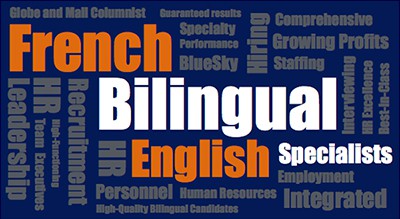Career Counselling After Living Abroad
The Question
I have just moved to Toronto after living in the United Kingdom for the past 11 years. I don’t have many connections here and I am feeling lost in my “career path.”I’m looking for some career counselling after living abroad. Can you point me in the direction of some free career counselling or someone I can talk to about careers or going to college?
Any advice you could give would be great.
The Answer
It can be intimidating to integrate yourself into a new market, especially if you are not only looking for employment, but also trying to figure out what career to pursue in the process. If you are in need of career counselling after living abroad, the good news is that Toronto, and most Canadian cities, have great resources to help you on your journey.
Ontario Employment Resource Centres may be a valuable place for you to start. On its website, you can search by postal code to find a resource centre in your area. You can also narrow your search to employment and job search counselling, and services for newcomers to Canada.
One of these centres, ACCES Employment, for example, has offices across the Greater Toronto Area, and offers free services such as employment counselling, job matching and placement and retention programs. Its sector/occupation-specific mentoring services can help you to develop your network of contacts in Canada.
In researching different career paths, consider the Princeton Review’s free, five-minute online career aptitude test (www.princetonreview.com/careers-after-college.aspx). You can take the test and peruse hundreds of “day in the life” career profiles that list the strengths required for each job.
For more personalized, in-person support, the YMCA also offers professional career planning and development services. While this is a customizable fee-for-service program, it provides comprehensive personality and aptitude assessments, including the Myers-Briggs Type Indicator and the Jackson Vocational Interest Survey, alongside one-on-one career counselling.
When looking at going back to school, in addition to speaking with admissions offices, be sure to visit the career centres of the colleges or universities you are researching. The University of Toronto, for example, offers a “careers by degree” section on its website that can help you connect a specific area of study to various careers. Students have full access to a suite of free services, including career counselling and job shadowing programs.
Career coaching may be another tool. According to Eileen Chadnick, principal of Big Cheese Coaching in Toronto, people are starting to recognize its value. “A good career coach can help you clarify your possibilities, articulate meaningful goals, and then create an action plan to achieve that,” she explains. While expert guidance can be beneficial, you must be prepared to invest in yourself as these services do come with a cost.
Once you have identified your career goals, speak to local recruiters who specialize in the industry you want to pursue. They can advise you on potential jobs in your area of interest, and recommend you to employers where there is a right fit.
The article above was originally published in the Globe & Mail.










